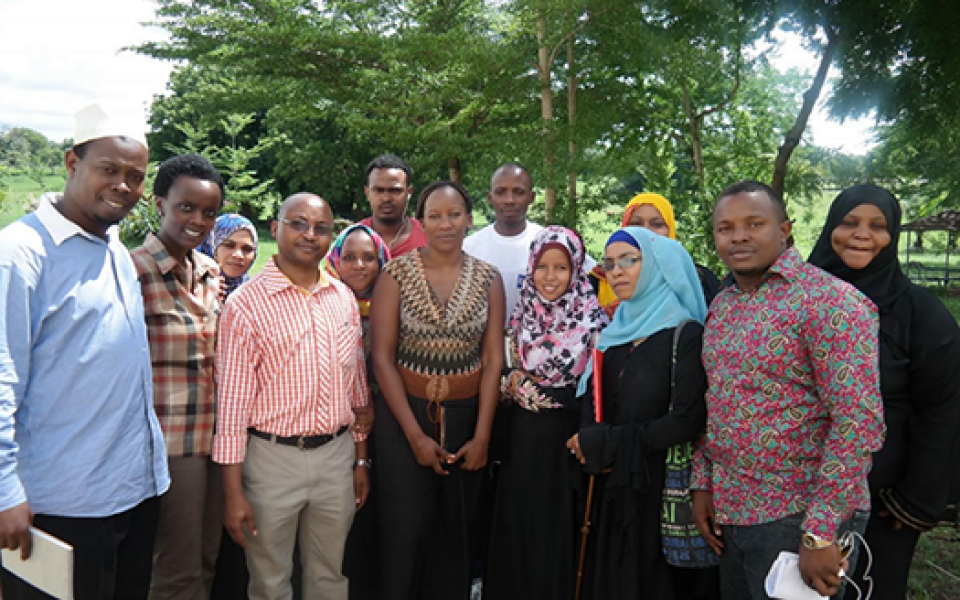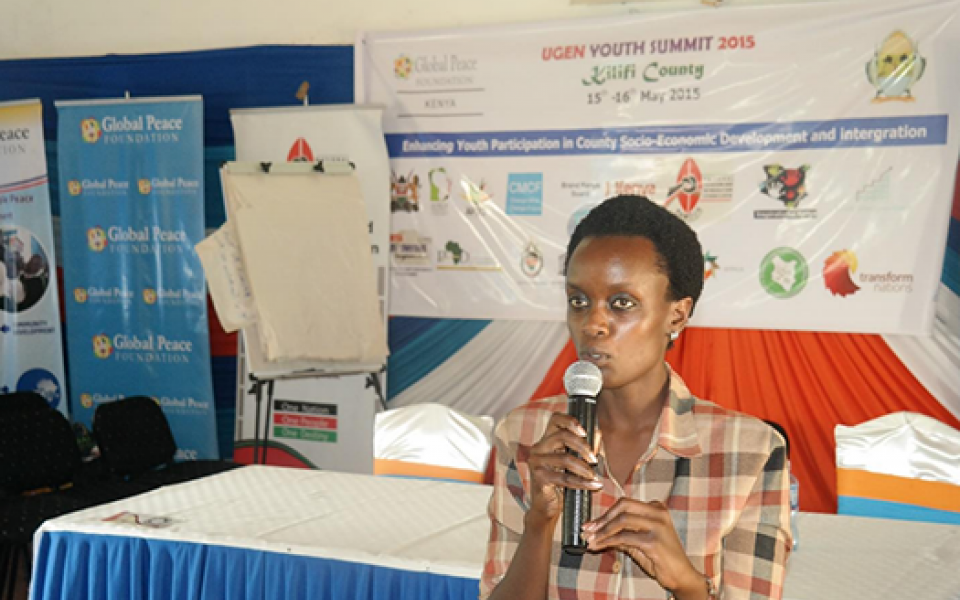
Nyambura Mundia with the National Cohesion and Integration Commission commissioners and the Youth Peace and Security working group after the session
Somalia’s growing Islamist radicalism is spilling over into Kenya. The militant Al-Shabaab movement has built a cross-border presence and a clandestine support network among Muslim populations in the northeast, Nairobi, and on the coast, and is trying to radicalize and recruit youth from these communities, often capitalizing on long-standing grievances against the central state.
On May 15-16, 2015 the Kilifi County Government (Kenya has devolved government and counties are the basic level. The Kenya Constitution has introduced two levels of government, the national government and the County government, which are distinct and interdependent. Kenya will have 47 counties to be headed by governors) on the Kenya coast, in partnership with Global Peace Foundation, and affiliated partners such as URI Kenya, held a Youth Summit that involved over 250 youth from the region.
The Youth Summit dealt with themes of youth empowerment, sustainable peace, and development aimed at re- strategizing youth empowerment towards peace and development. The collective appeal was: “Call to Moral and Innovative Leadership Among Youth.”
Among the topics of discussion by experts were:
1. Economic empowerment
2. Peace and security
3. Leadership development
United Religions Initiative, which I represented, was engaged in Peace and Security together with the National Cohesion Integration Commission.
I provided for the Interfaith Dialogue and Cooperation as a tool for peacebuilding, but also as a grassroots’ apparatus to help curb radicalization in the region while the National Cohesion and Integration Commissioner Belinda Ochiel took on Integration and Regional Cohesion as a whole.
Whereas dialogue is sometimes seen as a superficial effort against violence, linked to cooperation, dialogue can provide a structure to help nub the resurging radicalization.
United Religions Initiative offers a structure that empowers communities to appreciate their religious and cultural diversity and use it for betterment of their communities.
Through a process of brief presentations and question and answer sessions, within the local context I provided the functionality of Cooperation Circles, or models of them, which ensure that communities have a deeply rooted sense of cooperation.
It significantly came out that religion was not a problem in the region, but the fact that religion was used to mobilize converts, especially new converts, to be perpetrators of terrorism.
Religious assemblies and congregations were tasked to provide for structures that facilitate local intelligence and be assets for bridge building towards sustainable solutions to the ethnic and religious crevices that have made region a nucleus of violence and the incubator of it.
I have previously represented URI in this region and am in touch with the Coast Interfaith Council of Clerics, who are instrumental in mitigating the conflicts that ravaged the Tana Delta County; a county next to Kilifi and with similar dynamics.
Through the office of the Archbishop of Malindi diocese, (we had a joint project in Tarasaa in 2012 during the conflict that left scores dead), I have revisited the conversation of having an established Cooperation Circle with the clerics in this region towards playing a significant role in bridge building and complementing the efforts of both the government and other actors in this area.
- Nyambura Mundia, URI/Africa Country Contact

Nyambura Mundia speaking at the session
